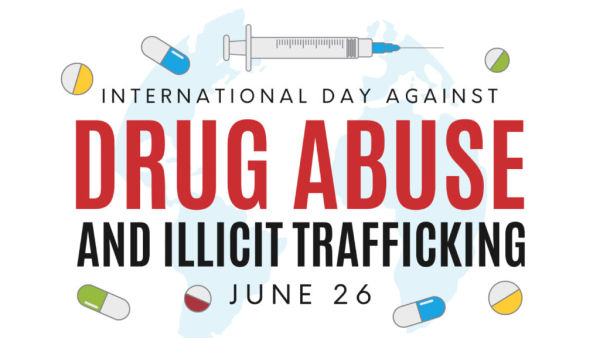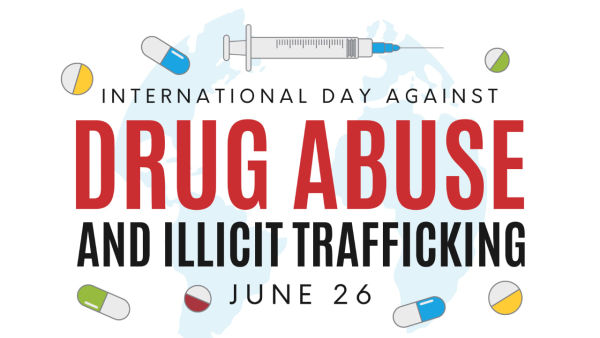

New Delhi: International Day Against Drug Abuse and Illicit Trafficking is marked by the United Nations every year on June 26 and was first observed on this date in 1989. In this world, the problem of drugs is a multifaceted challenge which touches millions of lives. The day is observed every year to strengthen cooperation and call for action in making the world drug abuse-free.
This year, the campaign for the day is “Break the cycle. #StopOrganizedCrime”. Let us examine the history and significance of this year’s campaign.
Organised crime drives the illegal drug trade, causing serious harm to people and communities worldwide.
In unstable regions, criminal networks are increasing drug production and trafficking at an alarming rate. In Southeast Asia’s Golden Triangle, methamphetamine has overtaken traditional drugs like opium and heroin. Armed groups are also involved in large-scale online scams and financial fraud. In Latin America and the Caribbean, record levels of cocaine production and trafficking lead to violence and weaken state institutions. As demand grows, cocaine markets are expanding quickly in Europe, Africa, and Asia.
The rise of synthetic drugs, including powerful opioids like nitazenes, creates new dangers. These drugs cause more overdose deaths and put pressure on already fragile health systems.
The illegal drug trade connects to other crimes, such as human trafficking, illegal mining, and environmental damage. Together, these crimes create a cycle that deepens poverty, exploitation, weak institutions, and addiction.
To stop drug trafficking, there is a need for long-term coordinated efforts to address both supply and demand and prevent organised crime from taking advantage of weaknesses.
This year’s World Drug Day calls for investment in prevention, including justice, education, healthcare, and alternative livelihoods. These are crucial for building lasting resilience.
Drug trafficking is a major global issue. The first international conference on narcotic drugs took place in Shanghai in 1909. Over time, a system was developed to control the production, trafficking, and abuse of drugs.
Three drug control treaties were created under the United Nations:
1. Single Convention on Narcotic Drugs, 1961: This treaty aims to fight drug abuse through coordinated international action. It seeks to limit drug use and trade to medical and scientific purposes and to deter drug traffickers through international cooperation.
2. Convention on Psychotropic Substances, 1971: This treaty established international controls for psychotropic substances to address the increase in drug abuse and introduced regulations for several synthetic drugs based on their potential for abuse and therapeutic value.
3. United Nations Convention against Illicit Traffic in Narcotic Drugs and Psychotropic Substances, 1988: This treaty includes measures against drug trafficking, money laundering, and the diversion of precursor chemicals. It promotes international cooperation, including extradition of traffickers and controlled deliveries.
This day encourages action and cooperation for a drug-free society.
The UN works against drug abuse through various agencies. The United Nations Office on Drugs and Crime (UNODC) leads the fight against illegal drugs and international crime. Established in 1997, the UNODC has offices worldwide.
The UN observes International Days to raise awareness, garner government support, and engage individuals and communities in addressing pressing global issues. In 2016, the General Assembly convened a special session on drugs.
This day highlights the severe impact of drug abuse and addiction on individuals and society’s peace, development, and growth. Every year, nearly 200,000 people face issues to illegal trafficking.